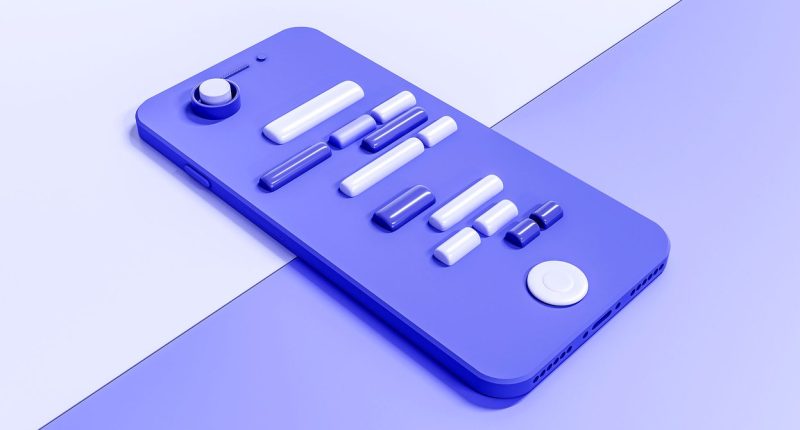

During the early days of the pandemic, Migicovsky became fixated on fragmented messaging—the generally recognized fact that most people have to use a variety of different apps to keep in touch with their contacts. Migicovsky and Murray started building a service that would collate all messaging in one app container, using an open source, decentralized messaging protocol called Matrix.
But the holy grail for Migicovsky was to create texting equality between Android and iOS. Normally when an Android user sends a message to an iOS device, it shows up as a green bubble, while blue bubbles are reserved for iMessage only. Beeper on Android would instead send secure, encrypted, “blue bubble” messages to iOS devices.
The standard version of Beeper used hundreds of Mac mini computers as relay points so that Android messages to iOS devices wouldn’t default to SMS. But Migicovsky and his team later created a forked “mini” version of their app that reverse engineered the way iOS notifications work and let the messages flow between the Beeper app itself and iOS Messages. The blue bubble was achieved. Migicovsky charged $2 per month for this Beeper Mini app at launch.
No sooner did Beeper Mini roll out in late November than Apple took steps to squash it, citing security concerns. Migicovsky and his team scrambled to create workarounds, and made the app free in the interim. But by the end of 2023 it was clear that Beeper Mini was an untenable product, although Beeper had succeeded in raising awareness around Apple’s tight grip over its software.
In December more than a dozen watchdog and digital rights organizations called on the Department of Justice and the Senate Judiciary Committee to investigate Apple for anticompetitive behavior. The DOJ’s investigation into Apple was already long in the works, but earlier this month that suit finally landed—and cited green bubbles as an antitrust concern.
Beeper was ultimately more of a symbol of the challenges faced by upstarts who challenge the entrenched interests of Big Tech than it was a stand-alone product. But Migicovsky insists he’s not disappointed in the results. He’ll continue on at Automattic as the head of the Beeper product, and he says he’s glad Beeper wasn’t sold to a giant tech company. “I think this at least introduced another philosophy around anti-competitiveness, like a company can have monopolies in some markets or specific parts of markets,” Migicovsky said.
Beeper’s reliance on an open source protocol, Matrix, was also appealing to Automattic. While usage of the Beeper app wasn’t widespread, it had managed to support more than a dozen different messaging platforms within its app. In this way it’s similar to Texts, the other Automattic-owned messaging app, which aggregates messages from iPhone, WhatsApp, Signal, Messenger, Slack, and others all in one container.
Mullenweg said in an interview with TechCrunch at the time of the Texts acquisition that he thinks too many technology services became “closed,” and that the “pendulum is now swinging very hard in the other direction towards more open standards.” While WordPress is Automattic’s most important product right now, Mullenweg has said that he thinks messages, not websites, could have a bigger impact in the long run.
At the very least, Beeper gets to live another day, which is more than a lot of tech startups can say.








